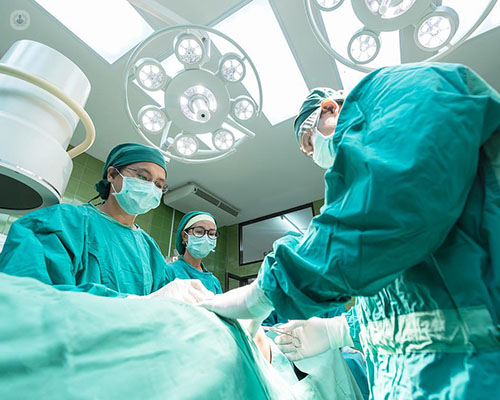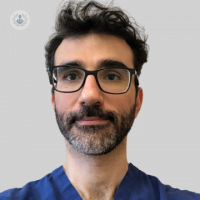Can gallstones be dangerous?
Written in association with:Gallstones are extremely common, and can range from asymptomatic to extremely painful. In his latest article, renowned surgeon Mr Eriberto Farinella explains their symptoms, how they form, and their diagnosis and treatment.

What are gallstones, and where and how do they appear?
Gallstones are essentially stones that form in the gallbladder. Normally the gallbladder is used as a small reservoir of bile that we use after eating. It aids in the digestion of food, especially fatty food.
We don't know exactly why, but sometimes the bile inside the gallbladder can form some debris and gradually with time this debris will form proper stones.
What symptoms do they cause?
Gallstones are often completely asymptomatic, but sometimes they can cause troublesome symptoms.
One of the symptoms is a pain in the right upper quadrant. Patients normally feel pain below the rib cage on the right side.
Sometimes it can radiate to the shoulder, to the centre of the abdomen, and towards the back. This pain normally appears a couple of hours after eating. It is especially common after eating foods rich in fat or oil.

It's quite common for the pain to appear in the evening, or even during the night. The patient can wake in the middle of the night with severe pain. This can last up to three, sometimes even six hours.
The other signs of gallstones are complications due to the stones, for example, an infection of the gallbladder (cholecystitis). In this case, the pain would become constant. An infection in the gallbladder needs to be treated with antibiotics. Sometimes you will need to go to hospital, because there is a small risk of perforation of the gallbladder.
The other signs would be more dramatic, like severe pain due to sepsis, or a blockage of the bile duct. Gallstones can also cause pancreatitis.
Can they be potentially dangerous?
Unfortunately, despite being very small, gallstones can be dangerous because they can cause biliary sepsis or blockage of the bile duct, which can lead to infection.
They can also cause pancreatitis, which can range from mild to severe. This can require admission to the ICU with respiratory support
How are they diagnosed?
Gallstones are usually diagnosed with the help of an ultrasound. In addition to an ultrasound, different types of scans may be necessary, such as an MRI. You may also require a liver function blood test.

What are the different treatment options available?
The only definitive treatment for gallstones is a cholecystectomy (gallbladder removal), which requires general anaesthetic.
There are a few other treatments available, such as an endoscopic treatment. This is usually done to remove the stones from the bile duct, but not the gallbladder itself. The right treatment will depend on the patient’s symptoms and the findings from the scans.
Mr Eriberto Farinella is a renowned surgeon, with over 15 years of experience. If you would like to book a consultation with Mr Farinella, you can do so today via his Top Doctors profile.


